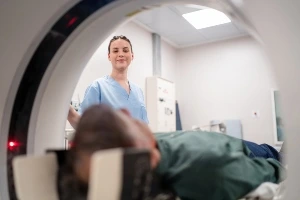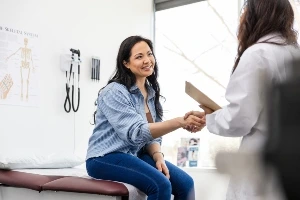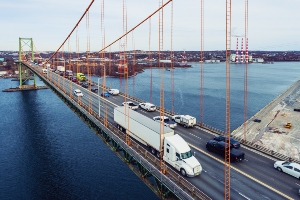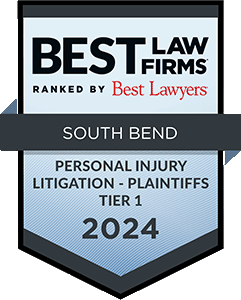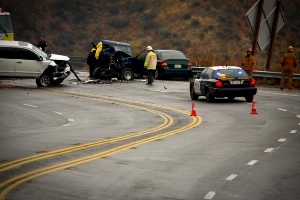 Experiencing a car accident can leave victims with various emotions, especially confusion, fear and uncertainty. These emotions could cloud your judgment, but you need to be aware of the hazardous conditions around you.
Experiencing a car accident can leave victims with various emotions, especially confusion, fear and uncertainty. These emotions could cloud your judgment, but you need to be aware of the hazardous conditions around you.
Below, Pfeifer, Morgan and Stesiak discuss hazardous conditions at the car crash scene and the safety measures that victims should take. You do not want to suffer another injury after what already happened in the collision.
If you have been injured in a car crash, our South Bend car accident lawyers can help you navigate the legal process. There are no upfront costs or fees to pay.
Call our office today to schedule a FREE case review. (574) 444-0741.
What Are the Hazards at a Crash Scene?
The danger of a car crash does not end after impact. The crash scene itself can be dangerous, exposing victims to the risk of serious or even fatal harm.
These are some of the dangerous hazards you may encounter at a crash scene:
Crash Wreckage
Bumpers, side mirrors and headlights can get knocked off the vehicles involved in car crashes. These types of debris have sharp edges that could cause deep cuts and lacerations if touched or fallen on. For example, if you get out of your car at a crash scene and you are not paying attention, the sharp edge of a broken side mirror could cut your leg.
Aggressive Drivers
Sometimes the at-fault driver gets angry about the collision. Even though it seems clear he or she is at fault, this person could yell at you or even threaten a physical confrontation. If this happens, do not get out of your car. It is best not to engage, as you could provoke the other driver. Wait for the police to arrive so they can deal with the other driver.
Fire, Fumes & Hazardous Materials
Some collisions cause fires or explosions, often because of a gasoline spill. Although it is rare for a car to explode, it could happen if it is carrying hazardous materials. For example, tanker trucks may be carrying flammable liquid or gas. They may also be carrying hazardous materials that could release harmful fumes.
In these kinds of situations, you may need to get out of your car and get a safe distance away.
Poor Street lighting
Car crashes can happen at night on roads with few or no streetlights, such as in rural areas. Poor lighting can make it difficult for you to see debris on the ground or other cars. Make sure to flip on your hazard lights and try to move your vehicle out of the flow of traffic.
Broken Metal & Glass
Some collisions shatter windows, spraying broken glass all over the pavement. Collisions can also leave sharp debris that could cause severe cuts.
Blood or Bodily Fluids
Some crash victims could suffer severe bleeding. Although you may want to help, it is important to be cautious before touching another person’s blood, especially if you have any open wounds.
How Can Victims Stay Safe at the Crash Scene?
You should never treat a crash scene like it is completely safe. Even if you were only in a fender bender, you need to be alert and aware of your surroundings. Call 9-1-1 so the police and paramedics come to the scene to render aid and investigate.
Give the dispatcher a phone number, so they can call you back in case you get disconnected. It is also beneficial to provide detailed information about where you are located, not just street names. At times, dispatchers are not able to pinpoint your location and a descriptive landmark can help police and medical personnel find you.
If you notice that the other driver is injured, ask for the dispatcher’s advice. They can let you know if it is okay to assist the other driver or wait for paramedics to arrive. The dispatcher may ask you for a description of what the driver is doing or give you instructions on how you can help.
Collecting evidence at the scene can help your case, but it is best to consider your safety first. If you are not able to get evidence, your lawyer can gather evidence to strengthen your case. However, if you do decide to take pictures at the scene, remember these safety tips:
- Before you exit your car, check for incoming traffic.
- Avoid walking too close to traffic to lower your risk of getting struck by a car.
- Watch where you are walking, so you do not step on debris or broken glass.
- Use a flashlight in areas that are not well-lit.
- Do not engage with drivers that are yelling or seem angry.
- Turn off your car after a collision to prevent car fires or overheating.
- Stay away from fires, so you do not breathe in smoke or get too close to a possible explosion.
Call Our South Bend Office To Further Discuss Your Case
We understand that compensation cannot eliminate the trauma that you endure during a car crash. However, our lawyers are prepared to help you throughout the legal process.
Our firm does not charge any upfront costs. We only get paid if we win your case and you receive compensation.
Call our office to speak to one of our lawyers. (574) 444-0741.
